My road to recovery: Finding belonging at 24 years old
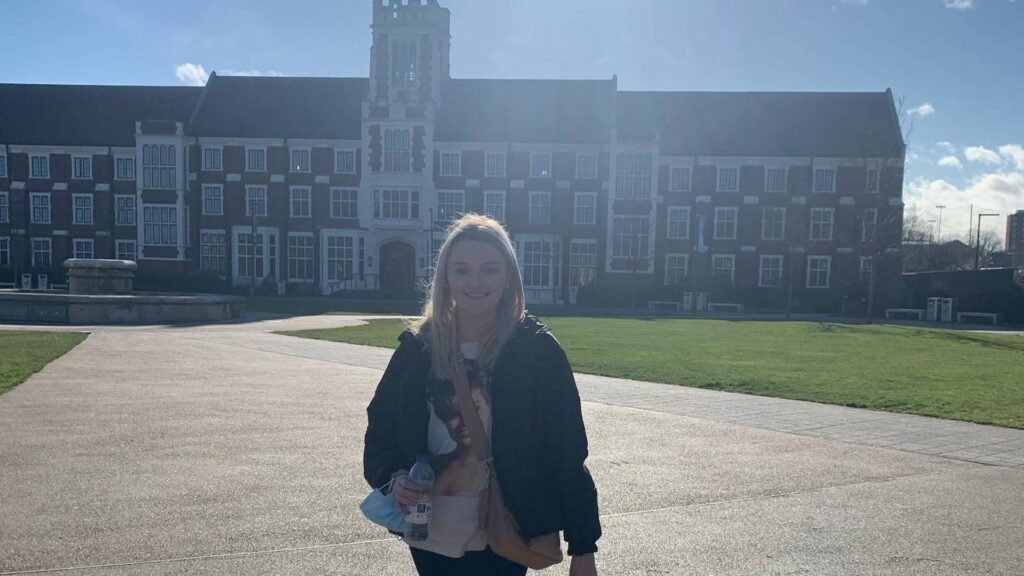
Final-year Psychology student, India Blakemore, reflects on her experience of mental health challenges, her road to recovery, and the support she received whilst studying for her degree.
Why it was always going to be Loughborough
I was inspired to study at Loughborough when my dad graduated there with a diploma in 2012. I attended his graduation at 14 years old, and since then, I have always wanted to graduate at Loughborough. I had a photo taken in his gown and wanted to recreate this at my own graduation.
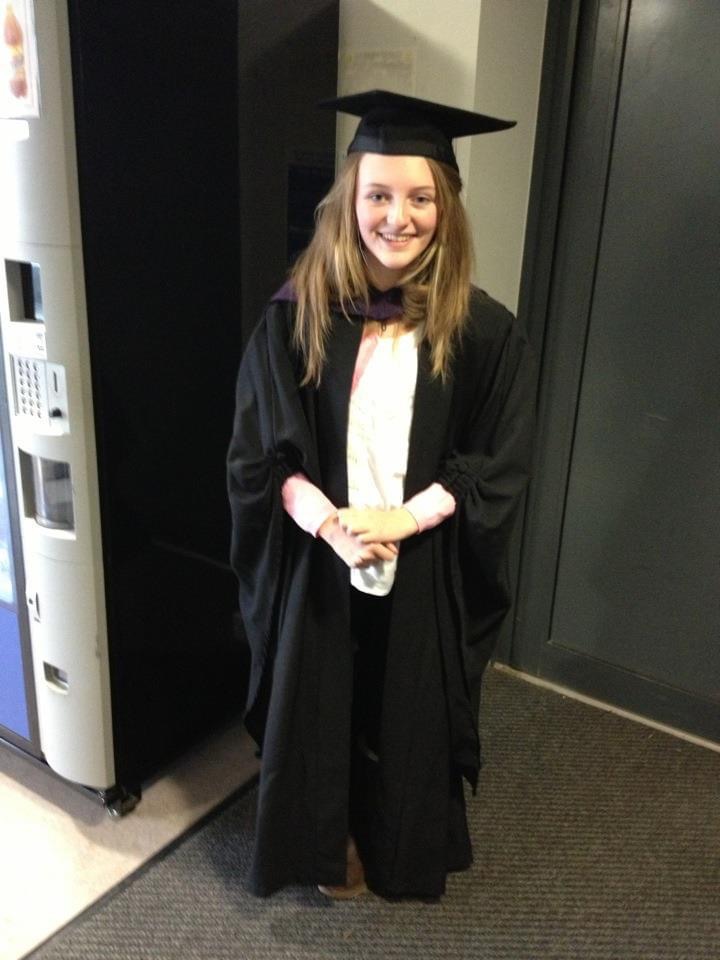
However, having suffered from mental ill health since I was a child, I’ve been in numerous services with various diagnoses. I rarely attended lessons at sixth form due to my extreme anxiety and a few symptoms of post-traumatic stress disorder (PTSD). After re-sitting my first year of sixth form at a different school, with incredible support I managed to achieve grades that allowed me to study for my chosen degree at my dream university. I began university in 2018 with these pre-existing mental health problems which I had been receiving treatment for under secondary care services back at home. I didn’t anticipate how difficult the transition to university would be mentally; I thought this would be the fresh start I needed.
My anorexia nervosa, mood, and anxiety rapidly declined, which led to almost daily GP visits, crisis team visits, welfare checks, ambulances and hospital trips. My difficulties led to me being placed under the Fitness to Study Procedure which I found incredibly hard to deal with, but looking back, it was the best thing that could have happened. This procedure involved meetings that explored what was the best support for me, including being sent home periodically; however, I was ultimately admitted to a specialist eating disorder unit at the end of my first semester. Due to the struggle of being in a ward environment and going through refeeding, I took my first leave of absence for the rest of my first year.
Putting University life on hold to focus on recovery
The summer before I was due to begin university in 2020, I was admitted to an acute mental health unit under section. I was discharged with community support after 28 days of assessment and then began my second year of studies. I returned as a Fresher Helper, surrounded by friends, but unprepared for university life again; I wasn’t managing despite probably ‘looking’ happy on the outside. I was receiving treatment at an urgent care centre daily as I struggled to regulate my emotions and internal distress; I became in denial there was anything wrong.
An emergency Fitness to Study meeting was held just a few days after Freshers’ Week, where I was sent home as it was clear I could not manage my mental health safely at university. I was heartbroken and felt like a failure as I was already so many years behind in my education.
A few days after returning home, I was sectioned again. I was discharged and re-admitted continuously. During this leave of absence in 2020, I received an autism diagnosis, which explained a lot of my difficulties in trying to fit into a neurotypical world as an undiagnosed neurodivergent. I finally felt like I had an explanation as to why I felt so different and found it difficult to regulate my emotions.
The final time I was sectioned was under section three for treatment; I went to two different acute wards and then moved to Milton Keynes (two and a half hours from my home) to commence inpatient dialectical behavioural therapy. This ended up being a 14-month admission in total. Whilst in hospital, I had regular contact with the University, and I also visited Loughborough with hospital staff. Not long after I was discharged, I had my last Fitness to Study meeting to discuss my return and I was taken off this procedure with a support plan in place.
Showing courage in the face of adversity
I returned to study in 2022 after a two-year leave of absence; this was not an easy transition, going from the four walls of a hospital to being completely independent again. I had a short period of instability but used the support around me (such as the University’s Mental Health and Wellbeing Team, NHS Community Mental Health Team, NHS Crisis Team, and my School) to remain at Loughborough. A few months in, I finally found my feet and found belonging at 24 years old. I received an attention deficit hyperactivity disorder (ADHD) diagnosis in early 2023 and started medication. This changed my life, and I finally understood so much; I no longer found myself experiencing extreme emotions and therefore could focus on my studies.
I secured a job in the NHS as a Lived Experience Co-trainer, and a short time later, I began delivering personality disorder training to staff within the trust. For this training, we were shortlisted for a Health Service Journal Digital Award which I attended in June.

I then secured another job in July with the same trust as a Clinical Support Worker. I have worked a few shifts on an acute mental health ward; however, I now work regularly within the Complex Needs Service in the community (working with those with personality disorders/difficulties). Within this role, I have assisted in developing psychoeducation for clients entering the service; working on the personality disorder strategy for the trust; attending the outcome measures and research meetings; and working with others in the team on our Plan-Do-Study-Act (PDSAs).
As part of my Lived Experience Co-trainer role, I sat on a panel at the Royal College of Psychiatrists in London to explain to other services doing the same quality improvement (QI) project how important it is to involve a lived experience voice and what I have gained from it as well as what I added to the project.
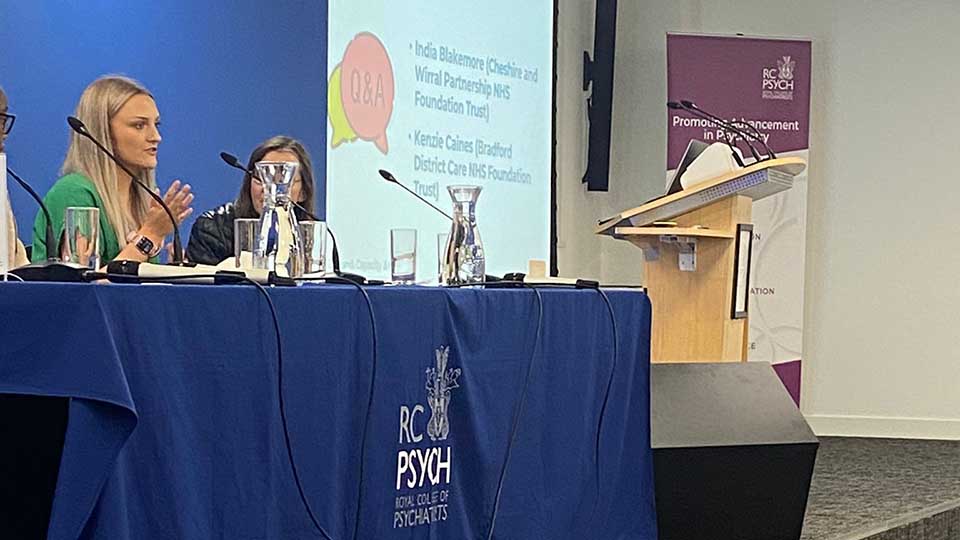
Alongside paid work within the trust, I volunteer in different areas; I am a Governor, I sit on interview panels, and I am an Expert by Experience for the lead provider collaborative EmpowerED.
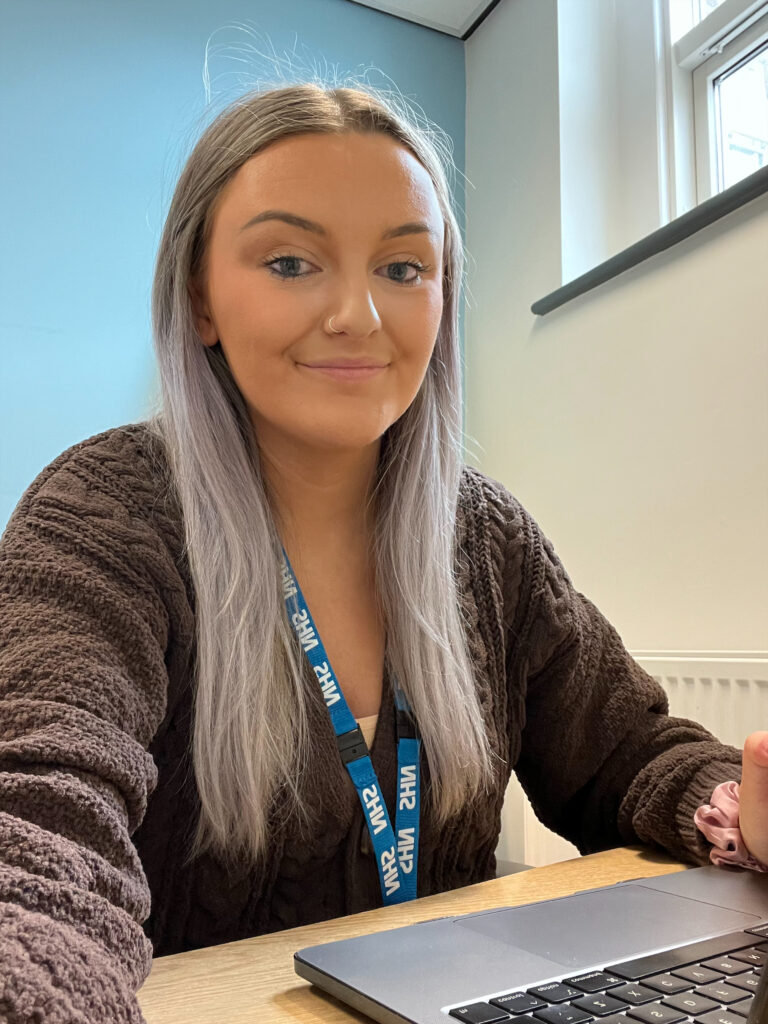
EmpowerED is the eating disorder lead provider collaborative, which covers the trusts and independent providers in the North West. As an Expert by Experience, I have delivered a talk at a government event and training to over 70 clinicians. I currently host the EmpowerED Podcast alongside another Expert by Experience where we speak with guests from across the collaborative about eating disorders in order to spread awareness. For World Mental Health Day 2023, I featured on The Full of Beans Podcast, an eating disorder awareness podcast by Hannah Hickinbotham.
Outside of my work with the trust, I am a member of the Emotion Dysregulation in Autism Youth Lived Experience Advisory Group, where I get involved in many opportunities to share my experience within learning environments, workshops, and more.
Through volunteering for Shout, I was nominated as 1 of 100 young people to attend last year’s Royal Foundation World Mental Health Day event, where I networked and heard from The Prince and Princess of Wales, Dr Alex George, and others. Being invited to such a prestigious event was an honour.
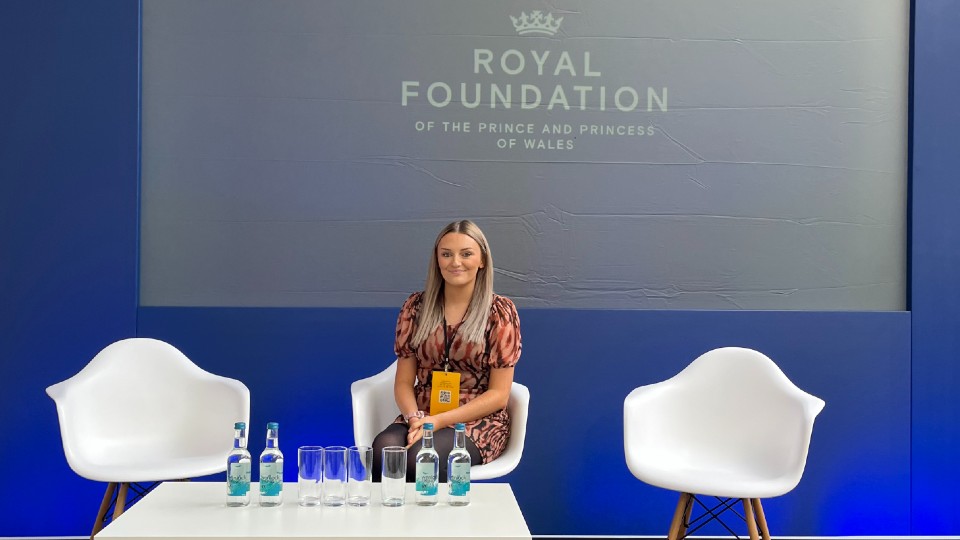
These are just a few of my achievements since I discharged myself from hospital in April 2022, there are many more exciting opportunities that I am going to be involved with in the near future.
I like to be busy and keep my mind occupied. In order to juggle working alongside studying I plan my weeks as far in advance as possible, so I always know what I have on each week. I prioritise my university work and try to fit everything else around this. However, all the extra things I participate in will hopefully aid my degree and future career.
Reflecting on my Loughborough journey
Loughborough has made me a very determined and resilient person, and I am extremely grateful for the support I received despite all of my absences. No matter how poorly I became, support from the University has always been there, waiting for me when I became well enough to study again. I am so grateful to everyone who has been involved with me at the University for never giving up on me and seeing my true determination to attain my degree.
The Mental Health and Wellbeing Team at Loughborough have gone above and beyond, they have always done all they can to enable me to continue studying whilst also acting in my best interest when I deteriorated to the point I could no longer study. They have been my biggest advocate and supported me through everything I have been through in the past six years.
The School of Sport, Exercise and Health Sciences (SSEHS) have also been a great support; my Personal Academic Tutor has been consistent since my first year, which has enabled me to talk to her about any academic concerns whilst also understanding my circumstances. The Student Support Team within the School has also done everything they can to enable me to get through my degree whilst facing difficulties.
My Hall Warden has also been a massive support, despite my presentation, which may have been difficult to witness, she has supported me and acted in my best interest to ensure my welfare.
Looking to the future
Nearing the end of my degree I have faced further obstacles, including a hospital admission over Easter for a relapse in my eating disorder. My degree has been my main source of motivation, and the University has been incredibly accommodating, as they can see my determination despite the many hurdles.
My proudest achievement is that despite all the setbacks over the past six years, I have bounced back each time more determined to graduate. I haven’t let my mental health stop me from completing my degree; although it is taking more time than I expected, I am still going to graduate. I have an offer for a master’s degree and hope to apply for a Clinical Psychology Doctorate in the near future to work within secondary mental health services.
My advice to incoming Loughborough students would be no matter how difficult it will be to move away from home and into university to study, it will be worth it, and there is plenty of support around to guide you. Don’t be afraid to ask for support, everyone needs guidance occasionally, even those who you wouldn’t think of. It is a strength to ask for help when you feel that you need it.
Mental health support available to Loughborough students
If you are a student and need support with your mental wellbeing, there are a number of teams at the University who are here to help you through practical and pastoral support. The Mental Health and Wellbeing Team at the University work with you to find strategies to support your wellbeing and to overcome any barriers which mental health difficulties present to your studies.
Each of Loughborough’s Halls of Residence has a dedicated Warden team who are responsible for providing any pastoral or welfare support that you may need. You can find contact details for your Warden team by clicking through to your Hall and then looking under the ‘Hall contacts’ tab. Additionally, the Community Warden team is available to provide pastoral support to students living off-campus in the Loughborough area. Read more about how they can help you and get to know the team on their dedicated webpage.
Further services available for students can be found below:
- The LU Wellbeing app – a digital toolkit using a holistic approach to positively influence your wellbeing, incorporating mindfulness and cognitive behavioural therapy (CBT) amongst many other techniques.
- Togetherall – designed to help people get support to take control of their wellbeing and feel better. It provides 24/7 peer-to-peer and professional support (from experienced clinicians who are always online), plus a range of courses and tools to help people self-manage their wellbeing.
- The Yellow Book – an online resource with various tools and techniques to help combat stress in written and audio format. The e-book features poems, songs, readings and artwork to help with your mental wellbeing (please note that sign-in is required).
- The University Chaplaincy – (Email: chaplaincy@lboro.ac.uk, Tel: 01509 223741) offer a confidential listening service and can also signpost to other services if you need additional support. University Chaplains are here to listen, care and help all staff and students. No appointment is necessary.
- Nightline – a confidential, non-advisory listening and information service run for students by trained student volunteers from the University.
Health and Wellbeing
Wellbeing means being in a positive physical, social and mental state. Wellbeing is important to us as happy, healthy people who achieve harmony in their work / life mix are more creative, productive and help to create a great place to work.